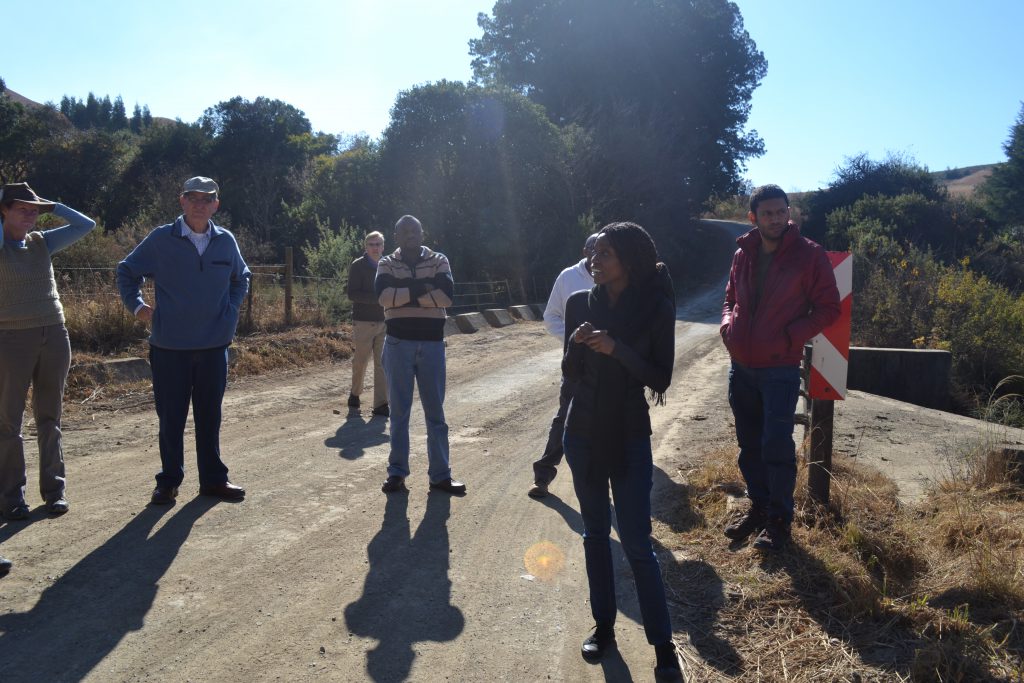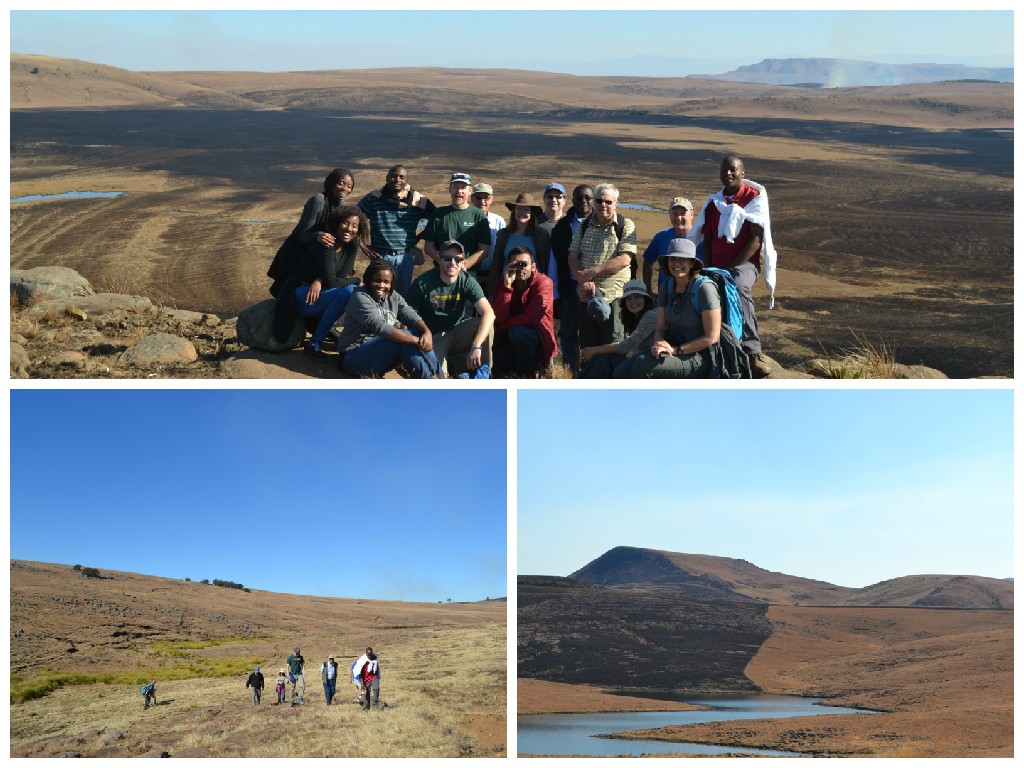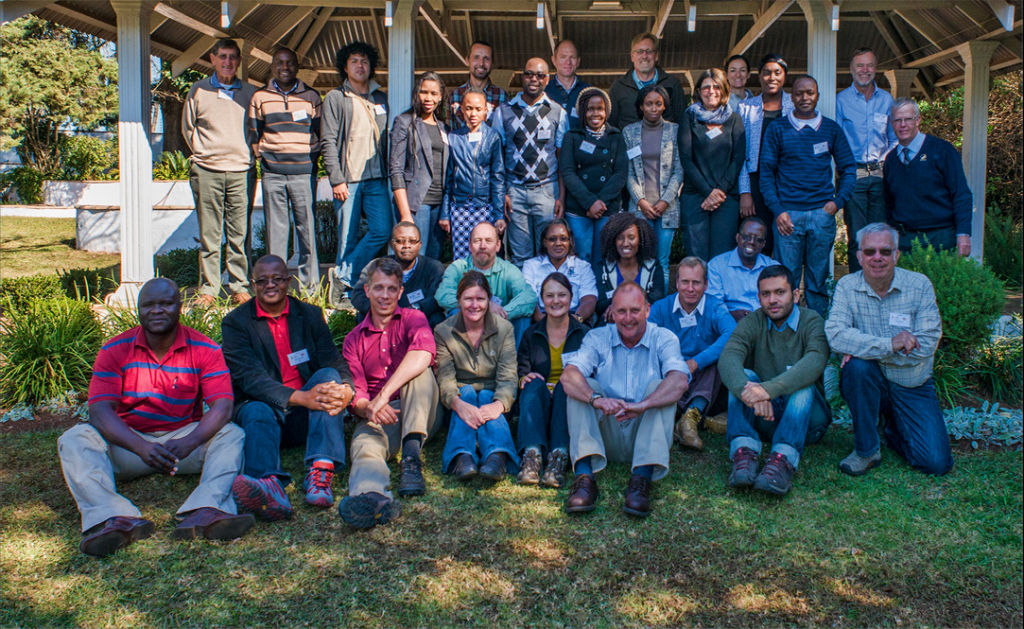
The University of KwaZulu-Natal hosted the 2015 Insaka Research Symposium in Howick, KwaZulu-Natal from 23-36 June 2015. The symposium’s main theme was Benefit Sharing in Social-Ecological Systems: Policy and Practice. There were over 30 participants mainly from Copperbelt University, Zambia; Monash University, South Africa; the University of Namibia; the University of Montana, USA; the University of KwaZulu-Natal; the International Water Security Network; WWF Zambia and SANParks.
As a precursor to the event delegates took part in a field trip to the uMngeni river catchment. Thankfully it was a beautifully serene winter day, perfect for the long hike that was part of the field trip. Before the hike, one of the IWSN masters students (Nyaradzo Nazare) talked to the group about her research on the uMngeni River basin, focusing on water quality and security within the dairy industry.

The view as we hiked was spectacular, making it worth the effort. As we walked and talked we gained an insight into the land-use patterns in the area and the diversity of benefits the various stakeholders get from the uMngeni River basin (e.g. water for agricultural production, urban water supply and the aesthetics from the landscape, etc).
The main part of the symposium comprised of presentations and discussion sessions. The IWSN masters students gave two presentations which illustrated two instruments for benefit sharing, drawn from the research case studies of all five IWSN masters students. One presentation focused on “polycentric governance as a tool for benefit sharing”. The presentation highlighted how polycentric governance can be used in solving challenges in benefit sharing through the case studies carried out in the sugar industries in South Africa and Zambia by Busani Masiri and Nkosinomusa Ncube. The other presentation was based on “self-regulation as an instrument for promoting benefit sharing” drawing from Agness Musutu, Nyaradzo Nazare and Jitender Taneja’s case studies on the fisheries in Zambia, the dairy industry in South Africa and community-managed energy supply in India. The comments and suggestions that were given after the presentations were very useful and helped us think about how we would shape the discussion of the results for our theses.

The symposium gave us the opportunity to engage in a dialogue about benefit sharing and network with people from multiple disciplines and professional backgrounds making it a great learning experience. After all the presentations, discussions were held in small groups, drawing from the wide ranging individual experiences of the different delegates. These were then summarised and presented to the rest of the delegates during the sessions.
To conclude the symposium, a discussion about the strengths and weaknesses, opportunities and the constraints, of Insaka was held. This provided an opportunity for us to constructively criticise Insaka and come-up with innovative suggestions to improve it, therefore giving an insight into how Insaka could move forward into the future.
Many thanks to the organising committee of Insaka; our supervisors A/Prof Bimo Nkhata, Prof Charles Breen, Ms Linda Downsborough; the International Water Security Network and Prof Chad Staddon for their endless support.
